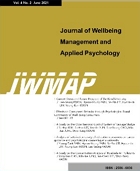 E-ISSN : 2586-6036
E-ISSN : 2586-6036
Woo-Sik LEE
Abstract
Purpose: The purpose is to expand the role of local senior welfare centers as a place for intergenerational integration by analyzing the intergenerational awareness and satisfaction of participants in the intergenerational integration program. Research design, data and methodology: The empirical study conducted a survey on 205 participants (114 seniors, 91 teenagers) of the generation integration program being implemented at a senior welfare center located in Seoul. Results: Regarding the satisfaction of participants in the generation integration program, both the elderly and youth showed that the more contact they had between generations, the higher the satisfaction with participation. In the case of the elderly, the better the subjective health status, the older the respondent, and the lower the educational level, the higher the satisfaction, and the more frequently they met youth, the higher the satisfaction. On the other hand, the longer the youth participated in the program, the weaker their negative emotions toward the elderly, and the higher the degree of visits to grandparents, the higher their satisfaction with participation. Conclusions: The biggest determinant of satisfaction with the generational integration program at senior welfare centers is the intensity and frequency of contact between the elderly and youth generations.
- keywords
- Generation#1, Generation integration#2, Generation Integration Program#3, Senior welfare#4, generation awareness #5
- Downloaded
- Viewed
- 0KCI Citations
- 0WOS Citations













